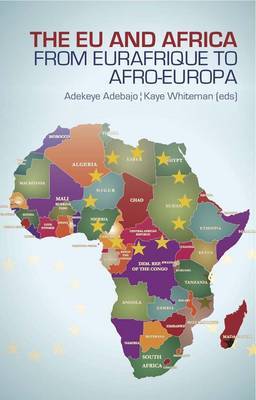The EU and Africa - From Eurafrique to Afro-Europa
Kaye WHITEMAN, Adekeye ADEBAJO
Disponibilité: En rupture de stock - disponible sous 10 jours
- Catégories: Afrique
- Editeur: Hurst Publishers
- ISBN: 9781849041713
- Date de publication: 01/06/2012
- Reliure: Paperback
- Nombre de pages: 320
Résumé
This book offers a holistic and comprehensive assessment of the European Union’s relations with Africa, focusing on their historical, political, socio-economic, and cultural dimensions. It argues that Africa and Europe still appear not to have fully escaped the burdens of history, and examines the feasibility of elaborating and practising, in future, an ‘Afro-Europa’: a new relationship of genuine equality, partnership, and mutual self-interest between both continents that sheds the baggage of the ‘Eurafrique’ past.
This book offers a holistic and comprehensive assessment of the European Union’s relations with Africa, focusing on their historical, political, socio-economic, and cultural dimensions. In the high imperial period from the nineteenth century, some in Europe advocated the idea of ‘Eurafrique’ — a formula for putting Africa’s resources at the disposal of Europe’s industries. After tracing Europe’s historical attempts to remodel relations following African independence from the 1960s and Europe’s own quest for unity, this book examines the current strategic dimensions of the relationship, especially the place of Africa in Europe’s own need for global partnerships. Key issues are then analysed, from trade and investment to the growing priorities of security and governance, offering case histories of the role of key European players in Africa — France, Britain, Portugal, and the Nordics — within the context of the EU. The volume concludes by examining the important issues of migration and identity, especially in view of Europe’s controversial immigration policies and complex relations with the Maghreb and Mediterranean, as well as perceptions of past and current European identity.
This book argues that Africa and Europe still appear not to have fully escaped the burdens of history, and examines the feasibility of elaborating and practising, in future, an ‘Afro-Europa’: a new relationship of genuine equality, partnership, and mutual self-interest between both continents that sheds the baggage of the ‘Eurafrique’ past.
